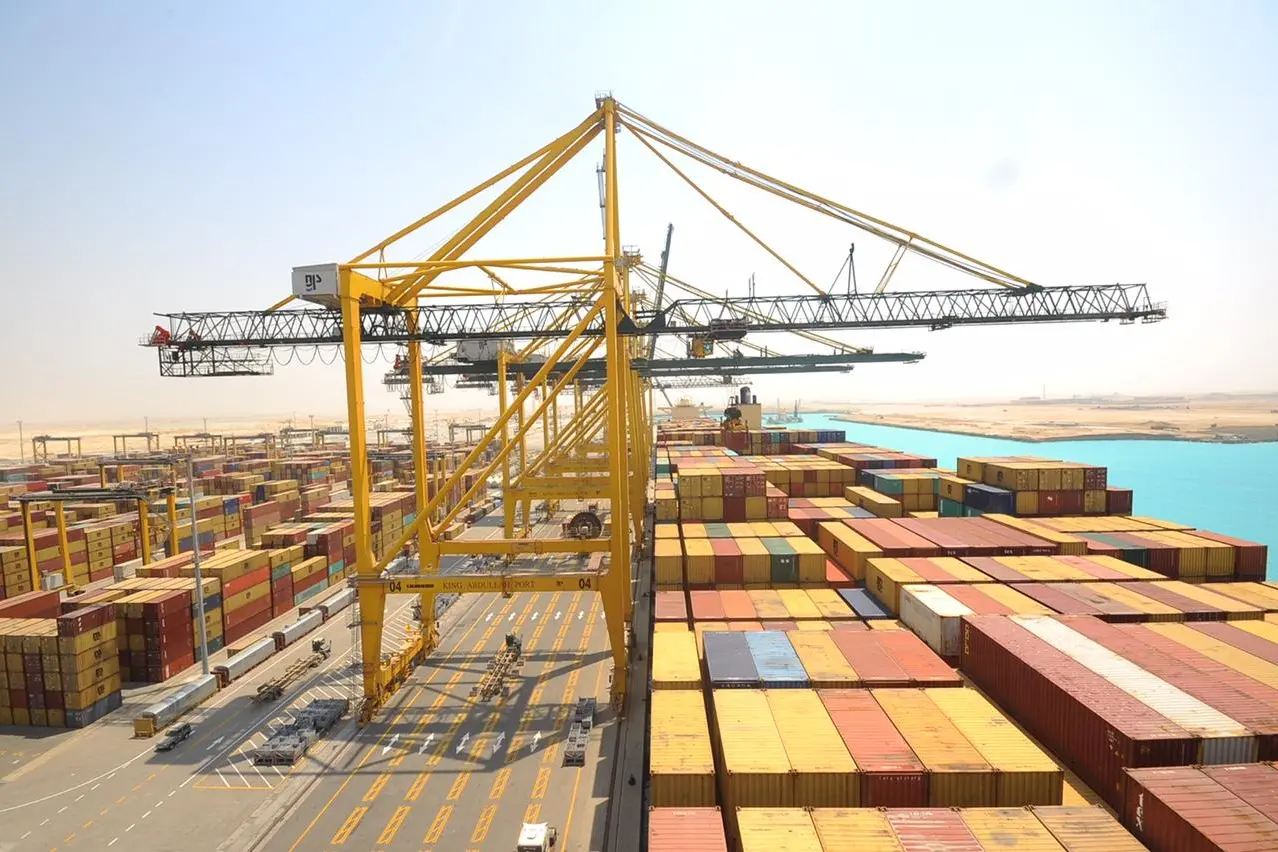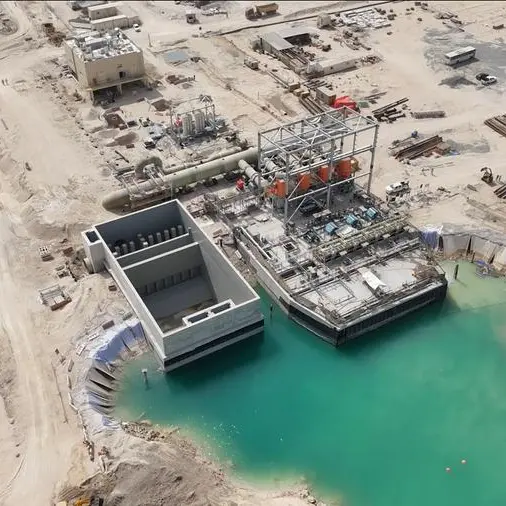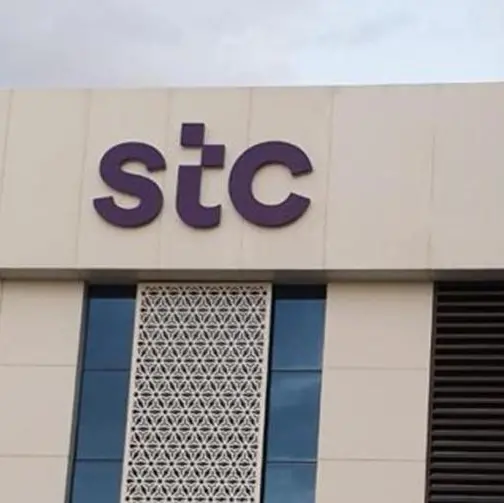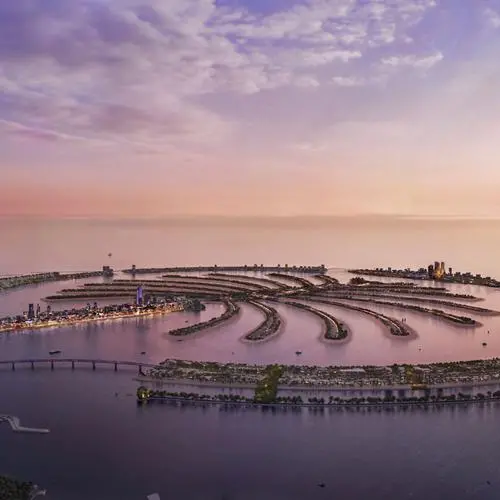PHOTO
Once regarded as the conservative Middle East Kingdom with little appetite for reforms, Saudi Arabia, over the past few years, has aggressively pursued economic reforms and diversification positioning it for a stronger bounce back from the pandemic and low oil price impact, according to international experts.
Discussing Saudi’s role in world trade at the GTR MENA virtual conference last month, these experts noted that Saudi Arabia’s macro-economic indicators look better than other emerging markets, noting that the country’s push to occupy a significant place on the world trade corridor through industrial zones and infrastructure could keep up its growth momentum.
Macroeconomics
Florence Eid-Oakden, the CEO and Chief Economist of Arabia Monitor, said the year 2020 was an inflection point for the Gulf region as analysts started to treat the region as a mainstream emerging market.
If one considers growth in Saudi against growth in the region or globally, “we will see the glass as half-empty,” she said.
“Globally, we are looking at a V-shape recovery. The question is whether the recovery in growth will make up for lost activity over the last two years. In economies like Saudi Arabia, we could end up seeing that,” she said.
Elaborating further, she said, “Global average growth for the period 2018-2021 is estimated at 2 percent, zero growth for the Euro area, 3.6 percent for emerging markets – including India and China, and 2.075 percent for the GCC.” In her opinion, the picture is not that bleak, considering that Arab countries went into the pandemic on the back of two to three years of lackluster economic activity.
For Saudi Arabia, the expected contraction is 5.4 percent for 2020, followed by a 2.6 percent expansion in 2021, but Eid-Oakden said growth is likely to be higher because of multiple factors like expanding international trade and the price of oil, which could be higher in the next two quarters than the current forecast.
She said inflation of 3.7 percent by end-2021 is “manageable,” and a favorable debt to GDP profile “leaves room for optimism” compared to other emerging markets. By the end of 2021, Saudi’s gross debt as a percentage of GDP is estimated to be 34 percent.
Dynamic reforms
Eid-Oakden said the progress on reforms over the past year has been “massively more dynamic and innovative” and is without comparison in the Middle East or other emerging markets during that period.
She said what matters is that “the current quantum is much more impressive, dynamic and rapid than the previous (plans),” and even a 50-60 percent execution rate is good.
Syed Hassan Javed, Head of Trade, Receivables and Supply Chain Finance, Gulf International Bank, added: “The [Saudi] ministries used last year as a period of preparation. They are adopting international best practices…. regulators are reaching out to banks… policy reforms on company ownership was announced …and more reforms are expected in sectors like entertainment and mining.”
Eid-Oakden continued: “The ideas, businesses, and programs that will materialise are the ones where you can create jobs for the largest number of people and impact consumers in the most fundamental way. This is where the government will act most rapidly, and this includes education, health, entertainment, transportation, and logistics.”
Chipping in Ahmad AlAlawi, Head of Global Trade, Receivables Finance Origination and Client Advisory, SABB pointed out that the government’s efforts towards creating a sustainable business environment are reflected in Saudi Arabia’s ascendance in the Ease of Doing Business Index from 100 in 2018 to 63 in 2020.
Promoting the SME sector with regulatory support would drive the economy in the right direction, he said, adding that opening up the market to foreign investors and awarding projects to highly qualified international companies in consortium with local companies will help develop local capabilities.
Anjum Mirza, Head of Trade Finance, Trade Finance Solutions, National Commercial Bank, said the creation of the Saudi EXIM bank had given immense encouragement to businesses. “We see many credit insurance companies moving in and avenues opening up for foreign banks to compete in the area,” he said.
The global trade corridor opportunity
Mirza said Saudi Arabia is creating industrial zones targeting regional leadership in specific segments and establishing itself as a large trade corridor not just for the region but for the world.
Given how supply chains were affected [during the pandemic], having an industrial base in the region is essential going forward, he said, pointing out that though oil revenues have dropped, non-oil exports have been picking up.
“Currently non-oil exports are at $200 billion, and Saudi Arabia has set an ambitious non-oil export target of $1 trillion by 2030.”
Eid-Oakden added that China’s Belt and Road Initiative could be very important for the Middle East from connectivity and foreign direct investment perspective. “Independent of Chinese politics and whether the BRI is going to slow down due to bad investments, the China-Middle East axis continues,” she said.
Banks adapting to change
Mirza said the pandemic had allowed fintech companies to move into spaces earlier occupied by banks. He said banks must be proactive and create solutions pre-event instead of post-event.
They should focus on how businesses are reengineering their processes, flows, resourcing, balance sheets, choice of products, way of doing business, and their business models and adapt accordingly, he said, adding that “digitisation and innovation should be important ingredients going forward.”
Gulf International Bank’s Javed said banks were heavily into import-based products earlier but have started developing export-based products for Saudi clients over the last two years. “Now clients are looking at developing local manufacturing,” he said.
(Reporting by Sowmya Sundar; Editing by Anoop Menon)
Disclaimer: This article is provided for informational purposes only. The content does not provide tax, legal or investment advice or opinion regarding the suitability, value or profitability of any particular security, portfolio or investment strategy. Read our full disclaimer policy here.
© ZAWYA 2021





















